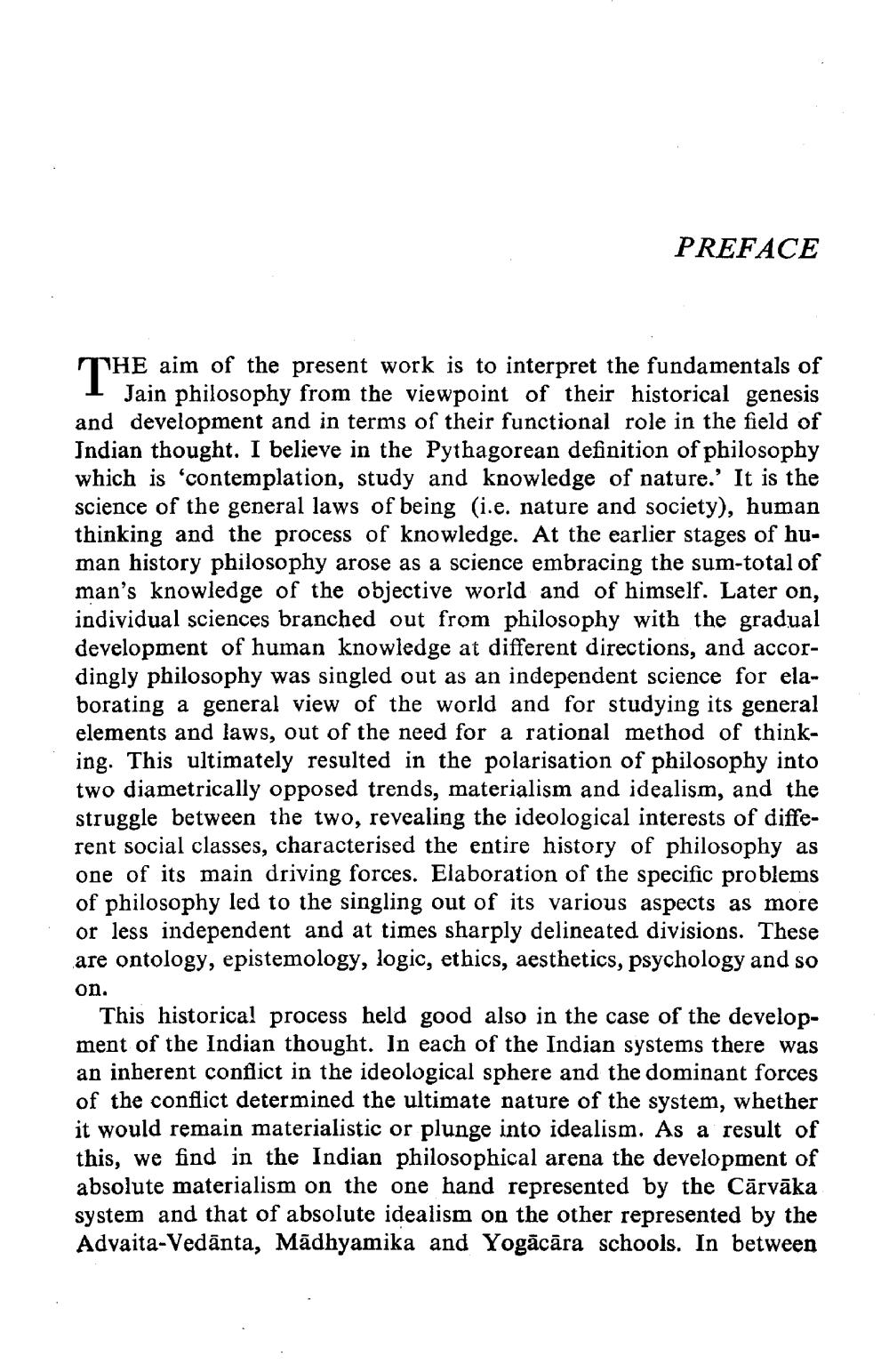________________
PREFACE
THE aim of the present work is to interpret the fundamentals of
1 Jain philosophy from the viewpoint of their historical genesis and development and in terms of their functional role in the field of Indian thought. I believe in the Pythagorean definition of philosophy which is 'contemplation, study and knowledge of nature.' It is the science of the general laws of being (i.e. nature and society), human thinking and the process of knowledge. At the earlier stages of human history philosophy arose as a science embracing the sum-total of man's knowledge of the objective world and of himself. Later on, individual sciences branched out from philosophy with the gradual development of human knowledge at different directions, and accordingly philosophy was singled out as an independent science for elaborating a general view of the world and for studying its general elements and laws, out of the need for a rational method of thinking. This ultimately resulted in the polarisation of philosophy into two diametrically opposed trends, materialism and idealism, and the struggle between the two, revealing the ideological interests of different social classes, characterised the entire history of philo one of its main driving forces. Elaboration of the specific problems of philosophy led to the singling out of its various aspects as more or less independent and at times sharply delineated divisions. These are ontology, epistemology, logic, ethics, aesthetics, psychology and so on.
This historical process held good also in the case of the development of the Indian thought. In each of the Indian systems there was an inherent conflict in the ideological sphere and the dominant forces of the conflict determined the ultimate nature of the system, whether it would remain materialistic or plunge into idealism. As a result of this, we find in the Indian philosophical arena the development of absolute materialism on the one hand represented by the Cārvāka system and that of absolute idealism on the other represented by the Advaita-Vedānta, Mādhyamika and Yogācāra schools. In between




